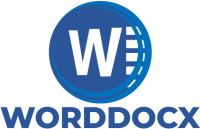I was killing some time testing the limits of conversational AI – think ChatGPT but with a third-party app. I had a ‘conversation’ with the app about hard money loans. I was surprised by how much misinformation it was attempting to pass off as legitimate. For example, the app kept referring to hard money loans as ‘nonconforming’ loans. That description is not quite accurate.
A nonconforming loan is almost always defined as a mortgage that doesn’t comply with the standards of certain government sponsored entities, like Fannie Mae and Freddie Mac. Therein lies the first problem. Hard money loans are not mortgages.
Nonconforming Mortgages Are Private Loans
Perhaps some of the confusion lies in the fact that nonconforming mortgages are offered by private lenders. That makes them private loans. Guess what? Hard money loans are also private loans. But that is about the only thing the two types of loans have in common.
Because nonconforming mortgages do not meet conventional standards, they need to be structured in very interesting ways. More often than not, loan originators don’t hold on to the loans for very long. They package them into bundles and sell them to investors on the secondary market. But none of these things has anything to do with hard money.
Hard Money Is Not for Home Mortgages
Hard money is a type of lending reserved exclusively for business purposes. There isn’t a hard money lender in this country handing out home mortgages like a bank. It just doesn’t happen. Hard money lenders make loans to SMEs, large corporations, individual investors, land developers, and so forth.
Actium Partners out of Salt Lake City, UT is a perfect example. Actium mostly funds real estate transactions for investors in Utah, Colorado, and Idaho. They don’t write mortgages. They do not finance fix and flip projects. They don’t write loans to help people buy vacation properties.
They Aren’t Standard Business Loans
In fairness, hard money loans are not standard business loans. Perhaps that’s another reason they are often mislabeled as nonconforming loans. But the nonconforming issue aside, what is it that makes them so different from standard loans?
First and foremost, hard money loans are approved based on assets rather than a borrower’s full faith and credit. Where a conventional lender would look into a borrower’s credit history, income, current debt load, etc., hard money lenders only care about asset value.
When a borrower hits up Actium Partners looking for a loan to obtain a piece of real estate, the property itself is offered as collateral. Actium is interested in how much that property is worth as compared to the loan amount requested. Actium wants to see a value high enough to cover the entire loan and any anticipated expenses should the property have to be disposed of.
As long as the value is there, the borrower’s credit history doesn’t matter. Neither does his income, current debt load, or anything else. The property being acquired backs the loan to the lender’s satisfaction.
A Lesson Learned on My Part
I already knew that describing hard money loans as thestyleplus nonconforming loans wasn’t quite accurate when I started playing around with conversational AI. The lesson for me was this: conversational AI is not as great as it’s being made out to be. I shudder to think how much misinformation people are believing as fact when they use things like ChatGPT.
At any rate, now you know a few of the basics about nonconforming and hard money loans. If you ever want to know more, do the research funnyjok yourself. Conversational AI isn’t an infallible source of information.

